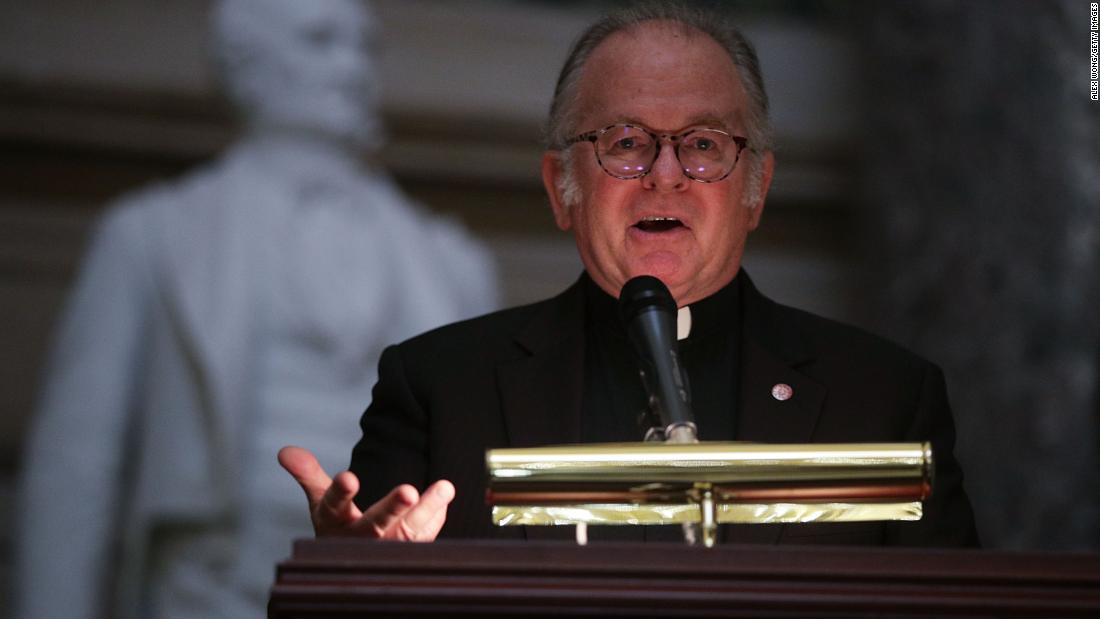
While there are few similarities between fired FBI Director James Comey, former acting Attorney General Sally Yates, former US Attorney Preet Bharara and
recently dismissedHouse Chaplain Patrick Conroy, one aspect of their unceremonious departures unites this group of former public servants. All four found their careers on the end of the proverbial Washington buzz saw when they refused to compromise, and all serve as important lessons in remaining true to individual principles in the face of politics.
The case of James Comey, someone whose staff I served on at the FBI, is being laid bare before the American people as Comey tours the country, promoting his new book, "A Higher Loyalty: Truth, Lies and Leadership." In it, Comey describes the key elements of ethical leadership, and spends the latter part of the book describing his interactions with President Donald Trump, someone he contends is morally unfit for office.
Most interesting in Comey's telling of his relationship with Trump is a private dinner the two men had at the White House, during which the President
indicatedhe needed loyalty from the nation's top cop. Understanding the long-held tradition of independence from politics, Comey demurred and said he would only give the commander in chief "honest loyalty."
Although we may never know if Comey's refusal to ingratiate himself that night sealed his fate, there were other instances where his actions in speaking truth to power may have played a role in his ultimate ouster. For example, his
now-public memosdocumenting his interactions with Trump spotlight a discussion during which the President attempted to convince the FBI director to drop an ongoing investigation into National Security Adviser Michael Flynn, and another incident when Comey criticized the President for praising Russia, which he believes angered someone who was not used to critical feedback.
Then there is former US Attorney Preet Bharara, whose case is reminiscent of Comey's. Known as one of the toughest and most effective federal prosecutors in the country, Bharara initially received word that the White House
wanted himto stay on the job, even when authority and custom permitted incoming administrations to choose their own US attorneys.
After he was abruptly fired from his position, Bharara described yet another apparently inappropriate attempt to blur the line of independence between the White House and the Justice Department. According to
his telling,Bharara received several telephone calls from Trump, who appeared to be trying to cultivate a personal relationship with a federal prosecutor who might have oversight into "interests close to the President of the United States." Realizing the inappropriate nature of a President directly communicating with a US attorney, Bharara refused to speak with the President, and was subsequently fired.
The story of Sally Yates is yet another example of someone who fell victim to her own decency. A prosecutor who served for almost three decades in the Department of Justice, Yates, a holdover Obama-era political appointee and acting attorney general at the start of Trump's term, was placed in the unenviable position of either enforcing the incoming administration's
executive orderbarring immigrants and refugees from several Muslim-majority countries, or standing on principle and refusing to comply with an order she felt was inconsistent with America's values.
To Yates, it was a no-brainer, and she sent a memo to the DOJ's prosecutors advising they should not enforce the potentially unlawful executive order. She would
defend her decisionby writing, "I am responsible for ensuring that the positions we take in court remain consistent with this institution's solemn obligation to always seek justice and stand for what is right." She was fired later that night.
And House Chaplain Rev. Conroy appears to be the latest victim of a Washington political swamp uncomfortable with conviction. He claims he was not provided a clear reason why he was asked to resign but described being chastised by Speaker Ryan after a specific prayer for members of Congress on the House floor, in which
he remarked, "May their efforts these days guarantee that there are not winners and losers under new tax laws, but benefits balanced and shared by all Americans."
Although no one wants a chaplain preaching about politics, Conroy's remarks hardly fall into the category of partisanship. As he described his role
to the New York Times, "If you are a chaplain of Congress, you are going to pray about what Congress is doing."
According to one explanation, Ryan
reportedly askedfor the chaplain's resignation after he failed to adequately meet the pastoral needs of the House of Representatives -- a claim several members dispute. That we have not heard further explanation for why the cleric was pushed out seems to suggest the rationale for his ouster isn't something the Speaker's office is ready to publicly own.
As we read about the nonstop allegations of alleged unethical behavior by various officials in Washington, it's amazing to think the four people mentioned above may have lost their jobs due to personal principles. Rather than populating government ranks with sycophants, or those who would sacrifice their own personal beliefs in order to remain in power, we need more officials who understand that one must be willing to lose their job in order to effectively do their job.
from CNN https://ift.tt/2rT39Jl
via IFTTT